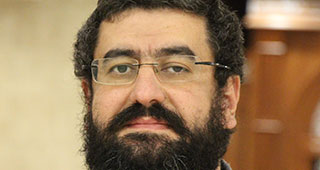Beit Midrash
- Torah Portion and Tanach
- D'varim
- V'zot Habracha
Moshe sees the Land of Israel from afar and is not allowed to actually enter its precincts. He envisions all of Jewish destiny until the last day. We are not told of the reaction of Moshe to this revelation of the future. There are times perhaps when one feels more privileged not to know too much regarding the future. I often think of the words of the rabbis that the righteous are taken away before great judgments and disasters strike the people of the Israel, so as not to have to endure the pain of witnessing those events. I therefore think that the Torah purposely does not record for us the reaction of Moshe to seeing all of the Jewish story unfold before him on his last moments on earth. But at least he is aware of the happy ending to the story as well, Israel restored to its land in security and prosperity. And that is the true blessing that he bestows upon his people. His serenity and confidence that all will eventually come right sustains us throughout our difficulties and trials. And his Torah marches with us towards that great day of complete redemption and triumph.
V'zot Habracha
Rabbi Berel Wein zt"l | Tishrei 9 5781

The Written and Oral Torah
Parashat Vezot Haberacha
Rabbi Moshe Chaviv | Tishrei, 5763






















